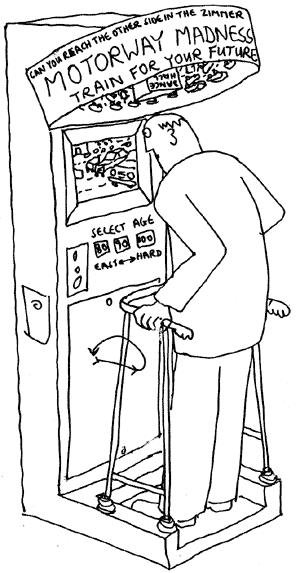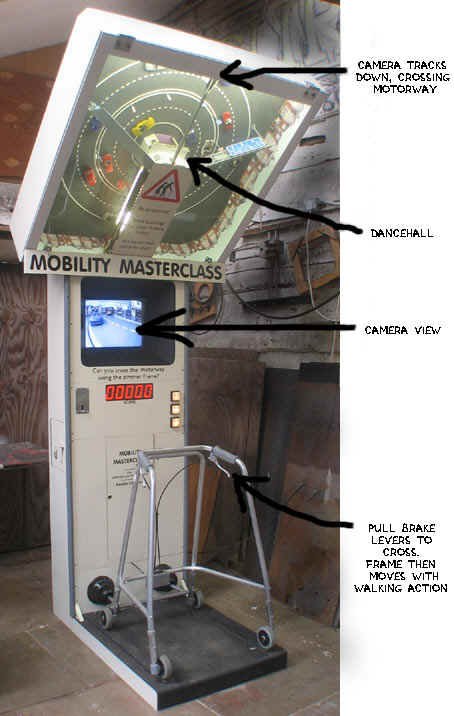LGF: Dorkfest gets creative with consoles
Fringe event at the London Games Festival gives inventors a chance to show what they can do with gaming hardware and a bit of imagination.
When he felt the geek and gaming community had failed to celebrate the 30th anniversary of Pong last year, James Larsson decided to honor the game in his own way. He created a pair of touch-sensitive women's leather boots, and connected them to an old hacked Pong console, allowing players to control the Pong paddle by squeezing and groping the boots.
The British inventor and hardware hacker's "Fetish Pong" was just one of the oddities shown at the London Games Festival's InSync Dorkfest: Console Hacks last night. The fringe event took a humorous and lighthearted look at the unexpected and entertaining things people do with games machines and other gadgets.

Larsson, talking about the history of Pong and early gaming, said the inspiration for his leather-bound homage to the first affordable mainstream video game came from Nintendo's popular Wii console.
"It's interesting, that of the big consoles the Nintendo Wii is generally thought of as having the least powerful graphics and computational abilities," Larsson said. "But it makes up for this by having a really exotic [controller]."
Larsson went one better than Nintendo with tactile control in Pong and added a twist; players who miss a point are hit by a leather whip from the middle of the console, powered by a blender motor.
The Dorkfest event was inspired by the international "Dorkbot" meetings of artists, engineers and others involved in the creation of electronic art. The event not only featured old technology being hacked to new uses, but the discussion of new ideas on the use of technology, especially outside its intended boundaries.
Matthew Garrett, a developer on the One Laptop Per Child Project (OLPC), which works to put custom-made, affordable, and durable wireless laptops into the hands of schoolchildren in the developing world, explored the platform's ability as a games machine. He described the OLPC as "the BBC Micro for the 21st century," a versatile educational computer with the potential to introduce gaming culture to a whole new generation of kids. Garrett said, "It's designed primarily as an educational project, but obviously like any other computer device, it's going to end up used for games."
There aren't currently many games for the machine beyond "Connect 4," but that's something Garrett believes will quickly change as OLPC moves beyond pilot projects in Africa, Asia, and South America. He also suggested the early networked nature of the OLPC (all machines are linked wirelessly to each other), its technical limitations, and educational focus might lead to a more collaborative gaming culture than in the West.

Music for the event came courtesy of Matthew Applegate, aka "Pixelh8", and the Nintendo Game Boy. The handheld hacker and chip tuner demonstrated his Game Boy synthesizer, which played complex funky electronica compositions. Built out of old Game Boy cartridges, the synthesizer slots into any Game Boy, allowing users to manipulate the sounds to create music.
The final speaker for the event was Tim Hunkin, engineer, cartoonist, and maker of TV's "The Secret Life of Machines." Hunkin is a fan of the old arcades that introduced so many gamers to their hobby. He talked the audience through the video of his "Under the Pier Show," located in Southwold, a penny arcade featuring a number of humorous, coin-operated machines created in his home workshop. It features rides like "Bathyscape," which simulates a submarine adventure and "Mobility Masterclass," in which you walk a zimmer (walker for the elderly) across a road. All of his creations use moving parts and recorded video, being more comic simulations than games. Hunkin suggested that modern arcades have "lost the plot" and that there is a lot of scope to redefine them so they attract people: "They only seem to want to make gambling machines nowadays, so it's a good time to reinvent them."
Got a news tip or want to contact us directly? Email news@gamespot.com
Join the conversation